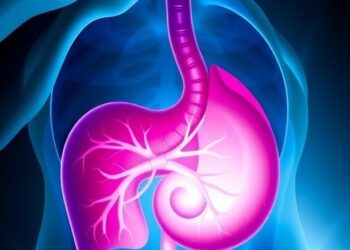More and more studies show that men face risks of cancer from BRCA1 and BRCA2 genetic mutations that are most often associated with breast and ovarian cancers in women.
More and more studies show that men face risks of cancer from BRCA1 and BRCA2 genetic mutations that are most often associated with breast and ovarian cancers in women.
According to a July 25 JAMA Oncology review article by experts at Fred Hutch Cancer Center and University of Washington, newly developed national screening guidelines offer hope for identifying the cancer risk of BRCA mutations in men through genetic testing and tailored cancer screening.
“Not enough men are getting genetic testing to see if they carry a BRCA1 or BRCA2 gene variant that increases their cancer risk,” lead author Heather Cheng, MD, PhD, the director of the Fred Hutch Prostate Cancer Genetics Clinic,. “And the men who know they are carriers get tested for their daughters, but don’t always know why it’s important for their own health.”
The article reviews the most recent screening and treatment guidelines for men carrying an inherited damaging variant in two genes, BRCA1 and BRCA2. The review includes updated recommendations for males with a family history of cancer and other risk factors that could help them, and their doctors understand cancer risks.
Men account for 50% of BRCA1/2 carriers and have an increased risk for prostate and other cancers; however current rate of testing for men is only one-tenth of the rate for women. The review refers to “males” as individuals assigned the male sex at birth and cites a study recommending that transgender women and gender neutral and gender fluid carriers of the BRCA1/2 mutations undergo individualized cancer screening based on sex-specific organs.
Because genes are inherited from generation to generation, there is a fifty percent chance that a male carrier of a BRCA1 or BRCA2 mutation shares this mutated gene with their biological offspring. The earlier people are aware of the possibility of carrying a BRCA1 or BRCA2 mutation, the more their medical care can be personalized and tailored to their specific situation: a hallmark of the promise of personalized medicine.
Despite the increased cancer risk for BRCA1 or BRCA2-carrying males, national guidelines on genetic testing and cancer screening have been slower to emerge for males, and national guidelines are now beginning to include more specific measures for males.
With less public awareness of the risk for males carrying BRCA1 or BRCA2 mutations, physicians and other health care professionals may not always be aware of the most up-to-date screening recommendations, which may exist in different places.
Cheng, who treats prostate cancer patients at the South Lake Union clinic at Fred Hutch, noted that programs such as the Fred Hutch Prostate Cancer Genetics Clinic, the GastrointestinaI Cancer Prevention Program and the Breast and Ovarian Cancer Prevention Clinic collaborate to provide comprehensive resources for both patients with cancer and their family members who may also carry increased inherited cancer risk.
“We have multiple programs centered around cancer genetics and prevention that help patients and their families,” Cheng said. “I get to meet the brothers and sons of my patients, some before they have cancer, in order to talk about screening for prostate cancer. And that’s really gratifying. It’s important for folks out there to know that we have these resources because sometimes they don’t know where to go for state-of-the art cancer early detection, prevention and treatment.”
National guidelines for males who carry a BRCA1 or BRCA2 mutation are available at BRCA Research and Cure Alliance and Basser Center for BRCA.
Men should become more proactive about discussing their families’ cancer history with their physician to ensure that they are given access to genetic testing where needed.
Taken together, these actions should help more men understand their lifetime cancer risk, which can lead to earlier cancer detection and better outcomes.
“These are recent guideline changes,” Cheng stressed. “I personally hope that as more people, including males are screened, we can advance progress and research faster, find the people most impacted and work together to reduce the burden of BRCA1 and BRCA2-related cancers.”
Fred Hutch cancer physician and researcher Daniel Lin, MD, contributed to the paper, along with University of Washington professors Mary-Claire King, PhD, and Colin Pritchard, MD, PhD, in tandem with a team of experts from other institutions.
This work was funded by the National Cancer Institute and U.S. Department of Defense.
###
Fred Hutchinson Cancer Center unites individualized care and advanced research to provide the latest cancer treatment options while accelerating discoveries that prevent, treat and cure cancer and infectious diseases worldwide.
Based in Seattle, Fred Hutch is an independent, nonprofit organization and the only National Cancer Institute-designated cancer center in Washington. We have earned a global reputation for our track record of discoveries in cancer, infectious disease and basic research, including important advances in bone marrow transplantation, immunotherapy, HIV/AIDS prevention and COVID-19 vaccines. Fred Hutch operates eight clinical care sites that provide medical oncology, infusion, radiation, proton therapy and related services. Fred Hutch also serves as UW Medicine’s cancer program.
Journal
JAMA Oncology
Method of Research
Literature review
Subject of Research
People
Article Title
BRCA1, BRCA2, and Associated Cancer Risks and Management for Male Patients
Article Publication Date
25-Jul-2024




